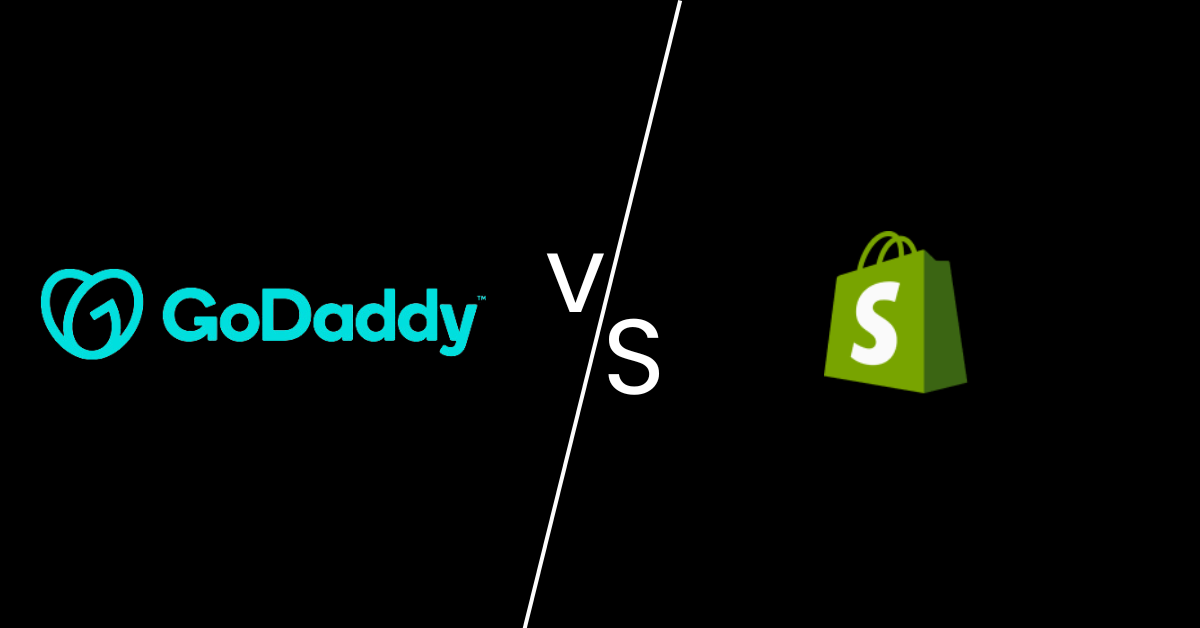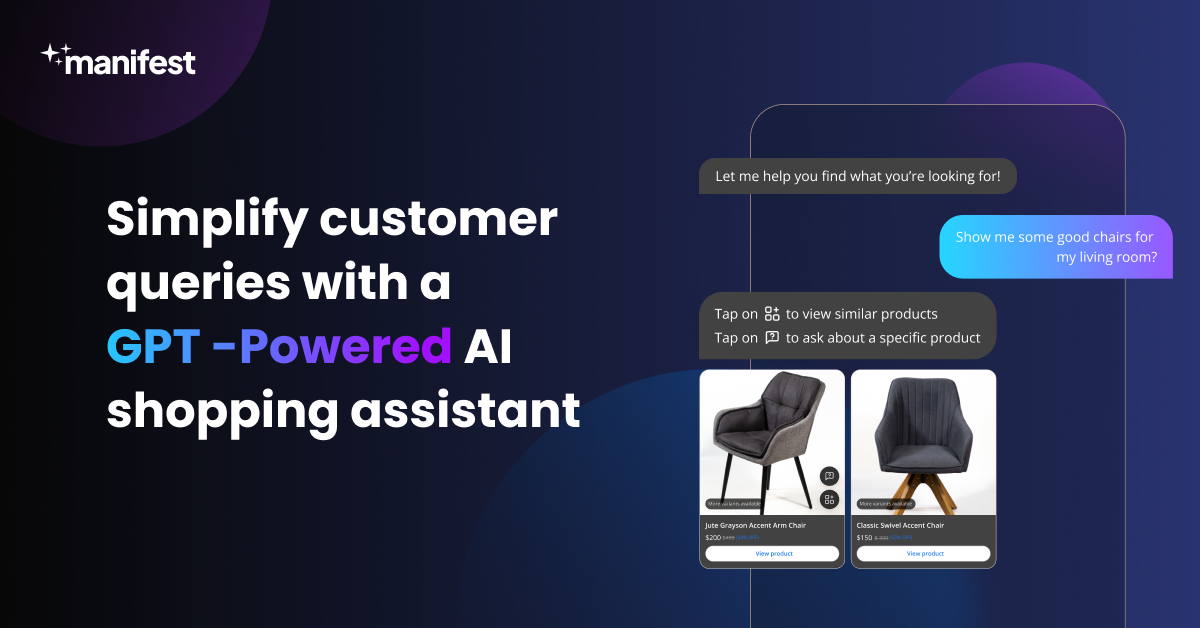Shopify vs GoDaddy: Which is Best for Your E-commerce Business in 2024

Choosing the right platform for your e-commerce business is a critical decision that can influence your online store's success. Shopify and GoDaddy are two of the leading options available in 2024, each offering distinct features and benefits tailored to different business needs. This blog aims to provide a comprehensive comparison between Shopify and GoDaddy, covering their usability, pricing, design flexibility, and support services. Our goal is to help you understand which platform aligns best with your business goals, budget, and technical expertise, making it easier for you to decide where to build and grow your online presence. Let’s dive into the details to find out which platform is the best fit for your e-commerce business in 2024.
Shopify vs GoDaddy: Meaning
Shopify and GoDaddy are both popular platforms offering solutions for building and managing online stores, but they cater to different aspects of the e-commerce experience.
Shopify is a dedicated e-commerce platform designed specifically for online retailers. It provides a comprehensive set of tools for creating, launching, and managing an online store. Shopify's features include a wide range of customizable templates, an extensive app marketplace for additional functionalities, integrated payment processing, and advanced sales and marketing tools. This platform is geared towards users looking for a robust, scalable solution to grow their e-commerce business.
GoDaddy, on the other hand, started as a domain registration and web hosting service but has since expanded to include a website builder that supports e-commerce functionality. GoDaddy's e-commerce platform is more suited for small businesses or individuals looking to quickly set up a simple online store without the need for extensive customization or scalability. It offers user-friendly design tools, basic marketing features, and straightforward product management, making it accessible for users with limited technical expertise.
In summary, Shopify and GoDaddy serve the e-commerce market in different capacities, with Shopify focusing on providing a comprehensive, scalable platform for serious online merchants and GoDaddy offering a more basic, easy-to-use solution for getting started with e-commerce.
Shopify vs GoDaddy: Comparison Chart

Shopify vs GoDaddy: Features
When comparing the features of Shopify and GoDaddy, it's important to note how each platform caters to different aspects of e-commerce and website creation. Here's a breakdown of their key features:
Shopify:
- Comprehensive e-commerce tools designed to manage and grow an online store efficiently.
- A wide range of customizable templates to fit various industries and aesthetic preferences.
- An extensive app marketplace offering add-ons for marketing, SEO, shipping, inventory management, and more.
- Integrated payment processing with Shopify Payments, plus support for multiple third-party payment gateways.
- Advanced analytics and reporting features to track sales, customer behavior, and store performance.
- Options for multichannel selling across social media, online marketplaces, and in-person sales.
GoDaddy:
- A user-friendly website builder that allows for quick setup of an e-commerce store with minimal technical knowledge.
- Basic e-commerce features integrated into GoDaddy's website builder, suitable for small stores or businesses looking to expand online.
- A selection of templates with simpler customization options compared to Shopify.
- Marketing tools including email marketing and SEO features to help promote your website.
- GoDaddy Payments for processing online transactions, alongside other payment gateway integrations.
- Less extensive analytics and reporting compared to Shopify, focusing on essential metrics for smaller operations.
Shopify vs GoDaddy: Pricing
When it comes to pricing, both GoDaddy and Shopify offer different plans to cater to the varying needs and budgets of their users, each with its own set of features and benefits.
GoDaddy Pricing

GoDaddy is known for its straightforward pricing and is generally considered a cost-effective option for individuals or small businesses just starting out. It offers a range of plans, including:
- Basic Website Builder Plan: Aimed at simple sites without e-commerce functionality. Pricing for this plan is relatively low, making it a good entry point for those looking to establish a basic online presence.
- E-commerce Plan: Specifically designed for online selling, this plan includes features for managing products, orders, and payments. It's priced higher than the basic plan but remains competitive, offering a simple solution for small-scale e-commerce needs.
Shopify Pricing

Shopify's pricing is structured around offering a more robust set of e-commerce tools and services, suitable for businesses at different stages of growth. Its plans include:
- Basic Shopify: Ideal for small businesses looking to start selling online. It includes all the essential features for setting up a store, with pricing that reflects its comprehensive e-commerce toolkit.
- Shopify: A step up, this plan offers additional features for growing businesses, including better reporting tools and lower transaction fees.
- Advanced Shopify: Targeted at larger businesses with advanced needs. It includes enhanced features for analytics, reporting, and shipping, with pricing that matches its high-level offerings.
Shopify vs GoDaddy: Pros & Cons
Shopify:
Pros:
- Comprehensive E-commerce Features: Shopify provides a wide array of tools specifically designed for online selling, including inventory management, payment processing, and marketing.
- Scalability: It's well-suited for businesses of all sizes, easily accommodating growth with various plans and extensive app integrations.
- Customization: Offers numerous themes and apps, allowing for a highly tailored online store that can meet specific business needs.
Cons:
- Cost: Compared to GoDaddy, Shopify's monthly fees, along with transaction fees (if not using Shopify Payments), can add up, making it more expensive overall.
- Complexity: The breadth of features and customization options can be overwhelming for beginners.
GoDaddy:
Pros:
- Ease of Use: Known for its user-friendly website builder, GoDaddy allows individuals with no technical background to set up a website quickly.
- All-in-One Solution: Offers hosting, domain registration, and website building in one package, simplifying the process for new users.
- Cost-Effective: Generally offers lower starting prices, making it accessible for small businesses or those just starting out.
Cons:
- Limited E-commerce Capabilities: While it supports basic e-commerce functions, GoDaddy lacks the depth of features found in Shopify, potentially limiting growth for more ambitious online stores.
- Less Customization: Offers fewer themes and integrations, which may restrict how much a store can be tailored to specific needs.
Shopify vs GoDaddy: Integrations
Shopify Integrations:
- Extensive Ecosystem: Over 6,000 apps available in the Shopify App Store.
- Wide Range of Functionalities: Includes marketing, SEO, inventory management, shipping, and customer service tools.
- Scalability: Solutions for all business sizes, with popular integrations like Klaviyo for email marketing, Facebook and Instagram for social media ads, and ShipStation for shipping.
- Customization and Growth: Designed to scale with businesses, offering advanced tools for expansion.
GoDaddy Integrations:
- Streamlined Selection: Offers a focused set of integrations directly within its website builder.
- Simplicity and Ease of Use: Aimed at smaller businesses or beginners, prioritizing straightforward tools.
- Essential Functions Covered: Includes basic SEO management, social media tools, and email marketing solutions.
- User-Friendly Experience: Less comprehensive than Shopify's but supports essential website and e-commerce functions efficiently.
Comparison Summary:
- Shopify: Offers a broader and more adaptable range of integrations, ideal for businesses looking for growth and customization options.
- GoDaddy: Focuses on simplicity with essential integrations, catering to new or small-scale online sellers who value ease of use.
GoDaddy vs Shopify for Ecommerce
When deciding between GoDaddy and Shopify for your ecommerce platform, consider the following points to determine which service aligns best with your business needs:
Shopify:
- Specialized Ecommerce Platform: Designed specifically for creating and managing online stores.
- Customization: Offers a wide variety of themes and apps to customize your store.
- Scalability: Easily handles growth, from small startups to large enterprises.
- Ecommerce Features: Comprehensive set of tools including inventory management, payment processing, and analytics.
- Support: Provides extensive support resources, including 24/7 customer service.
GoDaddy:
- All-in-One Solution: Combines web hosting, domain registration, and website building in one package.
- Ease of Use: User-friendly website builder ideal for beginners without technical skills.
- Speed to Market: Quickly set up a basic online store with minimal fuss.
- Cost-Effective: Generally offers lower starting prices, suitable for businesses with tight budgets.
- Support: Offers 24/7 customer support, though with a broader focus not limited to ecommerce.
Comparison Summary:
- Shopify is best suited for those focused on growing an ecommerce business, offering a robust platform with extensive customization options and dedicated ecommerce features.
- GoDaddy serves well for individuals or small businesses looking to quickly and easily set up a basic online presence, with an emphasis on simplicity and cost-effectiveness.
GoDaddy vs Shopify: Shipping Options
When deciding between GoDaddy and Shopify for your ecommerce platform, consider the following points to determine which service aligns best with your business needs:
Shopify shipping options:
- Specialized Ecommerce Platform: Designed specifically for creating and managing online stores.
- Customization: Offers a wide variety of themes and apps to customize your store.
- Scalability: Easily handles growth, from small startups to large enterprises.
- Ecommerce Features: Comprehensive set of tools including inventory management, payment processing, and analytics.
- Support: Provides extensive support resources, including 24/7 customer service.
GoDaddy shipping options:
- All-in-One Solution: Combines web hosting, domain registration, and website building in one package.
- Ease of Use: User-friendly website builder ideal for beginners without technical skills.
- Speed to Market: Quickly set up a basic online store with minimal fuss.
- Cost-Effective: Generally offers lower starting prices, suitable for businesses with tight budgets.
- Support: Offers 24/7 customer support, though with a broader focus not limited to ecommerce.
Comparison Summary:
- Shopify is best suited for those focused on growing an ecommerce business, offering a robust platform with extensive customization options and dedicated ecommerce features.
- GoDaddy serves well for individuals or small businesses looking to quickly and easily set up a basic online presence, with an emphasis on simplicity and cost-effectiveness.
Grow your Shopify Store with AI

Integrating Manifest AI into your Shopify store unlocks a suite of AI-driven capabilities designed to elevate your e-commerce business. Here’s how Manifest AI specifically contributes to your store’s growth:
- Tailored Shopping Experiences: Manifest AI leverages customer data to provide personalized product recommendations, enhancing the relevance of each customer's visit to your store.
- Instant Customer Support: Implement AI-powered chatbots from Manifest AI for real-time customer service, offering quick answers to inquiries and improving overall customer satisfaction.
- Smart Inventory Management: Utilize Manifest AI’s predictive analytics to efficiently manage stock levels, ensuring you have the right products available at the right time.
- Targeted Marketing Efforts: With Manifest AI, you can analyze customer behaviors and trends to craft marketing campaigns that resonate with your audience, increasing engagement and loyalty.
- Informed Business Decisions: Manifest AI offers deep insights into customer preferences and buying patterns, aiding in strategic decision-making for product offerings and store improvements.
- Boost in Sales: By providing a personalized shopping journey and responsive customer service, Manifest AI helps increase conversion rates and encourages repeat business.
Conclusion
Choosing between Shopify and GoDaddy for your e-commerce business in 2024 ultimately depends on your specific needs, technical abilities, and growth aspirations. Shopify stands out as a dedicated e-commerce platform, offering a wealth of features, customization options, and scalability to support your business as it expands. It's ideal for those who prioritize a comprehensive online store solution. On the other hand, GoDaddy offers a straightforward approach, making it easier for individuals or small businesses to quickly set up an online presence with less complexity and at a lower cost. It's best suited for those seeking simplicity and efficiency in getting started. Both platforms have their merits, so consider what aligns best with your business goals and operational preferences before making a decision.
FAQs
Is GoDaddy better than Shopify?
Whether GoDaddy is better than Shopify depends on your needs. GoDaddy is ideal for users seeking simplicity and a quick setup for small, straightforward sites. Shopify, however, is more suited for those focused on growing an e-commerce business with a wide range of features and scalability.

.png)
